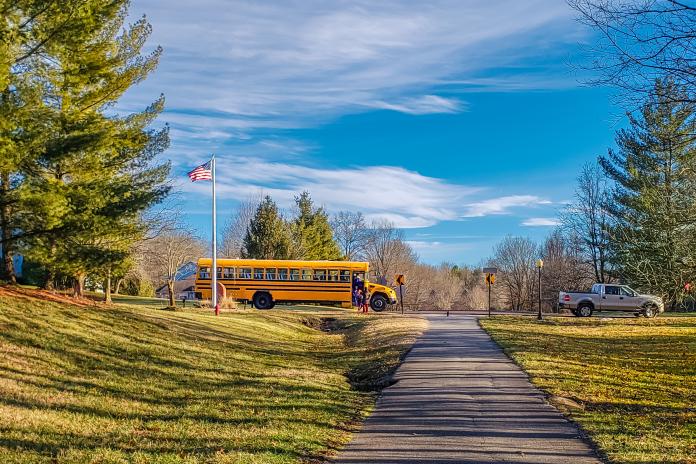STATEMENT: Responding to Local Demand Nationwide, EPA Announces Nearly $1 Billion in Grants for Zero-Tailpipe-Emission Electric School Buses

WASHINGTON (January 08, 2024) – Today, the U.S. Environmental Protection Agency (EPA) announced $965 million in grants across 37 states, one territory and several Tribal Nations, covering 280 school districts, as part of the Bipartisan Infrastructure Law’s Clean School Bus Program. With support for more than 2,500 electric school buses, today’s announcement represents a major step toward a clean ride to school for more than seven million students nationwide.
The nearly $1 billion in funding comes in response to overwhelming demand at the local level from school districts and private fleet operators who serve them, who submitted applications for almost $2 billion in grants to bring clean rides to their communities. Approximately 95% of school buses funded through the grants are electric school buses, reflecting applicants’ strong preference for zero-tailpipe-emission electric school buses over fossil fuel-burning options.
This is the second round of funding awarded through the Clean School Bus Program; the initial round of funding was structured as a rebate program and the third round of funding – also a rebate – is open for applications until January 31, 2024.
School districts and fleet operators from coast-to-coast chose to submit applications for grant funding that totaled nearly five times the amount of funding originally expected to be made available in this second round of funding, demonstrating once again the significant local enthusiasm for electric school buses. Crucially, around 85% of awards went to recipients designated as Priority districts in the application process, meaning that they are in high-need school districts and low-income areas, rural school districts, Bureau of Indian Affairs-funded school districts, and school districts that receive basic support payments for children who reside on Indian land.
The excitement for electric school buses should come as no surprise given their significant air quality, student health and climate benefits. Electric school buses are the only type of school buses that have no tailpipe emissions, so students aren’t subjected to dangerous exhaust fumes as they ride the bus. And regardless of the regional electric grid they rely on, electric school buses on average are responsible for lower carbon emissions than any other type of school bus.
Following is a statement by SUE GANDER, Director, WRI’S Electric School Bus Initiative:
“Today’s announcement is an unambiguous sign that the momentum for electric school buses is real, with thousands more clean-running electric school buses on their way to millions of students nationwide. Thanks to EPA’s Clean School Bus Program, students in communities from coast to coast will grow up with a new normal: clean air on their ride to school. They’ll ride free of those clouds of diesel exhaust from their bus, those smells – imagine that.
Across the country, school districts and fleet operators chose to apply so that their students would not be forced to breathe harmful diesel exhaust pollution from their own school bus. Today, the EPA met that unprecedented demand with historic grant funding of nearly $1 billion as part of the Clean School Bus Program, created by the Bipartisan Infrastructure Law. The Program is the main reason the number of electric school buses on the road or on their way to schools across the country has more than tripled in the last two years.
The overwhelming demand from school districts for zero-tailpipe-emission electric school buses shows once again that at the local level, communities are eager to bring the air quality, student health and climate benefits of electric school buses to their students. With 95% of grant awards going to electric school bus funding over the fossil fuel-burning options in the program, it’s clear that schools and communities are ready for real change.
We must continue to work to ensure that the transition to clean-running electric school buses is equitable. It’s encouraging to see that approximately 85% of awards went to districts designated as Priority status – and it’s vital that the transition to clean electric school buses prioritizes those communities most impacted by diesel exhaust pollution.
With the third round of funding through the historic Clean School Bus Program now open for applications through a simple rebate process, there is yet another opportunity for school districts and fleet operators to leverage federal funding to bring the benefits of electric school buses to their communities.”
Contact: Katherine Roboff, katherine.roboff@wri.org, 781-264-7010